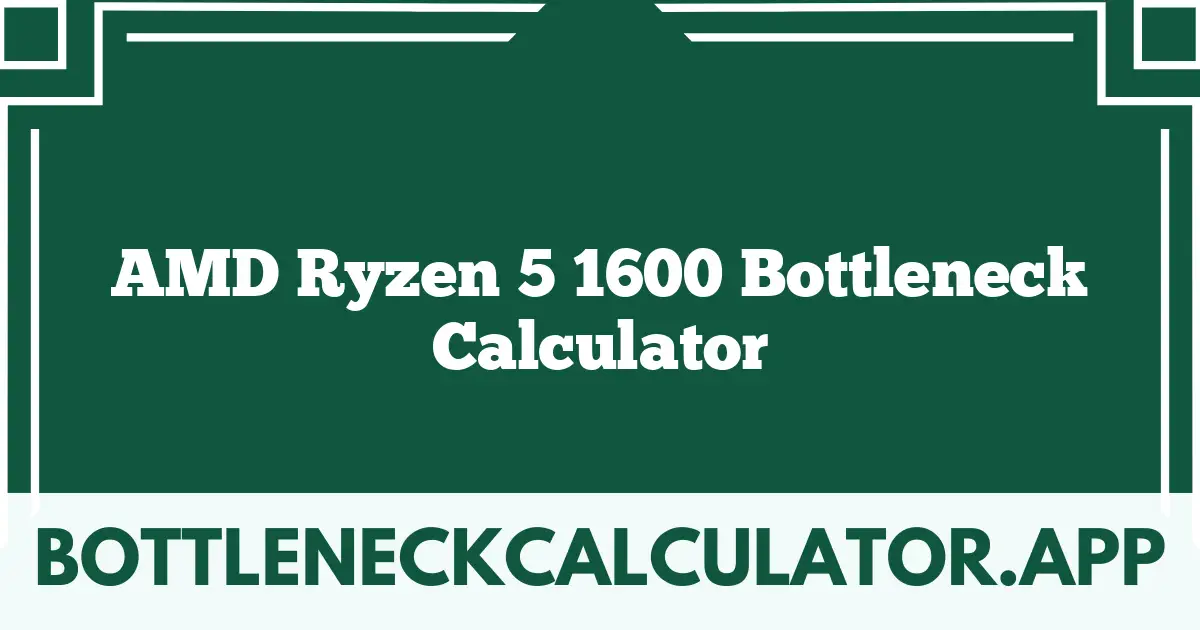PC Bottleneck Calculator
Over the past few years, the AMD Ryzen 5 1600 has gained significant popularity among gamers and content creators for its excellent performance-to-price ratio. However, as you begin to upgrade your gaming rig or configure a new build, you may wonder if your chosen components are well-balanced and whether they will lead to a performance bottleneck. This brings us to the concept of a bottleneck calculator, an imperative tool that helps you assess whether your CPU or GPU will hinder your overall system performance.
The term bottleneck refers to a situation where one component of your system limits the potential performance of another. For example, if your AMD Ryzen 5 1600 is paired with a top-tier graphics card, you might not be able to utilize the full potential of the GPU due to the CPU’s limitations. This imbalance can lead to lower frame rates, stuttering, or other performance issues while gaming or working with demanding applications.
Using a bottleneck calculator allows you to input the specifications of your CPU, GPU, and other relevant components to determine if there’s a potential risk of bottlenecking. To get started, you will typically need to know your CPU and GPU models, as well as any other components like RAM and storage that could impact system performance. Most calculators are straightforward and will give you a percentage indicating how much one component is likely to limit the performance of another.
When utilizing the calculator, you should pay attention to two key metrics: the CPU Usage and the GPU Usage. Ideally, both should be utilized without one component significantly underperforming while the other works at full capacity. If you find that your CPU usage is consistently high while your GPU usage remains low, this indicates that the CPU may be bottlenecking your system’s performance.
For practical scenarios, you may want to consider the recommended partner for your AMD Ryzen 5 1600. This processor is well-suited for mid-range GPUs like the AMD Radeon RX 580 or NVIDIA GTX 1060. By pairing the Ryzen 5 1600 with these options, you can achieve a balanced performance that allows for smooth gameplay at 1080p and even higher resolutions with the right settings.
On the other hand, using your Ryzen 5 1600 with high-end GPUs like the NVIDIA RTX 3080 might lead to underperformance due to bottlenecking, yet you might not face issues if you are gaming at higher resolutions like 1440p or 4K, where the GPU takes precedence. Thus, understanding the resolution and settings you plan to use is important for determining bottleneck potential.
Ultimately, the AMD Ryzen 5 1600 remains a solid option for both gaming and productivity but is best paired with a GPU that matches its capabilities. By utilizing a bottleneck calculator and making informed decisions about your components, you can create a well-balanced system that maximizes your gaming experience and productivity. Be sure to do your research, and consider future upgrades to keep your setup running smoothly as technology evolves.

